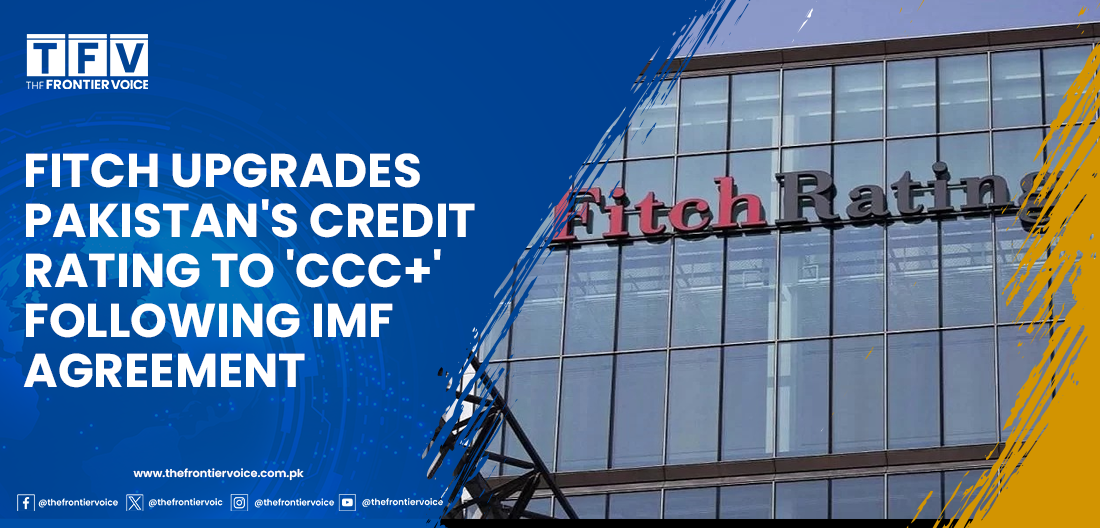BUSINESS/FINANCE
Fitch Upgrades Pakistan’s Credit Rating to ‘CCC+’ Following IMF Agreement

Fitch Ratings announced an upgrade of Pakistan’s Long-Term Foreign-Currency Issuer Default Rating (IDR) from ‘CCC’ to ‘CCC+’. This improvement reflects better external liquidity and funding conditions, significantly bolstered by a recent agreement with the International Monetary Fund (IMF).
The agreement, a new 37-month $7 billion Extended Fund Facility (EFF), follows Pakistan’s strong performance under a previous IMF arrangement. The country successfully narrowed fiscal deficits and rebuilt foreign exchange reserves, positioning itself for further economic stability. The upgrade is primarily attributed to the certainty of continued external funding following Pakistan’s staff-level agreement with the IMF. Under this new program, Pakistan aims to tackle long-standing structural weaknesses in its tax system, energy sector, and state-owned enterprises. The government has committed to exchange rate flexibility and improvements in the monetary policy framework.
Fitch noted that the IMF board is expected to approve the program by the end of August. However, the Pakistani government must first secure new funding assurances from bilateral partners, including Saudi Arabia, the UAE, and China, totaling about $4-5 billion over the EFF’s duration.
Over the past year, Pakistan has demonstrated strong fiscal discipline by raising taxes, cutting spending, and increasing prices for electricity, gas, and petrol. The government has also made significant strides in reducing the gap between interbank and parallel market exchange rates through stringent regulation of exchange houses and a crackdown on the black market. Fitch forecasts that Pakistan’s current account deficit (CAD) will remain contained at around $4 billion (approximately 1% of GDP) in FY25, following a substantial reduction to about $700 million in FY24. This containment is attributed to tight financing conditions and subdued domestic demand.
Pakistan’s foreign exchange reserves have shown signs of recovery, with the State Bank of Pakistan (SBP) rebuilding its FX reserves amid new funding inflows and limited CADs. Official gross reserves, including gold, rose to over $15 billion by June 2024 and are expected to increase to nearly $22 billion by the end of FY26, approaching their 2021 peak. Fitch’s analysis projects a primary surplus of 0.8% of GDP and an overall fiscal deficit of 6.9% of GDP in FY25, with further improvements to 1.3% and 6% respectively by FY26. These projections assume partial implementation of the revenue efforts outlined in the FY25 budget, which was prepared in collaboration with IMF staff. Despite these positive economic indicators, Fitch highlighted potential vulnerabilities due to Pakistan’s large funding needs and the necessity for challenging reforms. The agency cautioned that failure to implement these reforms could undermine program performance and funding stability.
Politically, Fitch expressed concerns over the close outcome of the February elections, which delivered a weaker-than-expected mandate for Prime Minister Shehbaz Sharif’s PMLN party. The PMLN and its allies command only a slim majority in the National Assembly following a Supreme Court ruling that re-allocated reserved seats in favor of independents linked to former Prime Minister Imran Khan’s PTI party. This upgrade by Fitch represents a significant milestone for Pakistan’s economic recovery efforts and sets the stage for further stability and growth. The government’s commitment to structural reforms and fiscal discipline will be critical in sustaining this positive trajectory.
